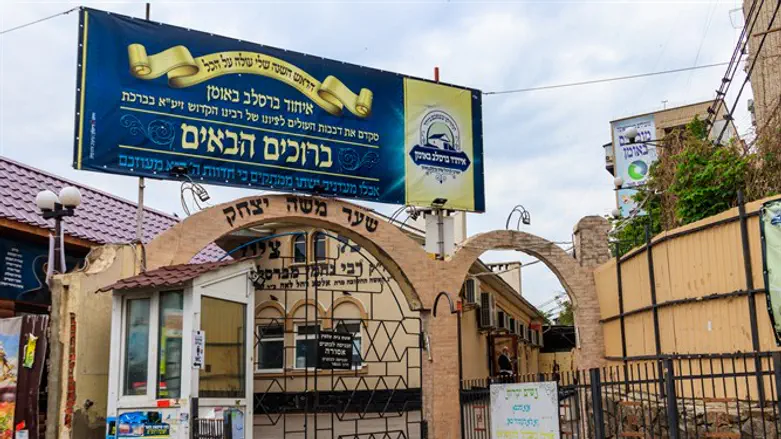
Breslov chassidim have still not given up all hope of reaching Uman this Rosh Hashanah, and efforts are still being made to have the Israeli government craft and authorize an outline that would permit several additional thousands of chassidim to reach the Ukrainian city where the gravesite of their Rebbe, Rabbi Nachman of Breslov, is located, as is their custom every year.
Now a new report on Channel 12 suggests that their hopeful optimism may not be entirely misplaced. The report notes that despite his previous strenuous opposition to the gathering in Uman, the Israeli government’s coronavirus project manager, Professor Ronni Gamzu, has ceased to protest on the matter. In addition, the report alleges that Gamzu is not even being kept updated on new developments, and has not been made privy to the contents of discussions on the issue of flights out to Ukraine, by the government ministers appointed by Prime Minister Netanyahu to formulate an official response.
The Haaretz website adds further fuel to the fire, reporting that a delegation of dozens of police officers is due to leave Israel for Uman next Sunday, under the direct order of the Internal Security Minister, Amir Ohana. This is no original development, since a large Israeli police delegation heads to Uman every single year in order to ensure the security of the tens of thousands who usually gather in the central Ukrainian city. However, given the specific circumstances this year and the fact that there is, as yet, no official outline even for the estimated three thousand chassidim already in Uman, it is not entirely clear why the delegation is being sent.
A source within the Israeli police told Haaretz that he saw “no reason to send dozens of police officers to Uman if we’re talking about a limited number of Israelis heading there, contrary to the expert advice of Israeli health officials. This decision is wrong on so many levels – in the message it sends to the public; in the economic cost; and most importantly, in unnecessarily exposing the officers to the danger of infection.”
Haaretz adds that Health Ministry officials are also opposed to the sending of the delegation, quoting an unnamed official who said: “There is currently no approved outline for travel to Uman. Either way, police who travel there will be obligated to enter a 14-day period of quarantine when they return to Israel, as the law stipulates.”
However, the official police response simply notes that, “The [decision to send the police officers] is related to a state-level agreement between the Internal Security Ministry and their Ukrainian counterparts.” A statement from Minister Ohana’s office confirmed that, “As is the case every other year, a request was received from the Ukrainian authorities to send a delegation of Israeli police officers who will operate alongside local police in Uman to assist in maintaining order. The composition of the delegation has not yet been finalized, and neither has the precise manner in which it will operate, but what is certain is that it will be on a smaller scale than on previous years, in light of the lower number of Israelis expected in Uman this year.”
